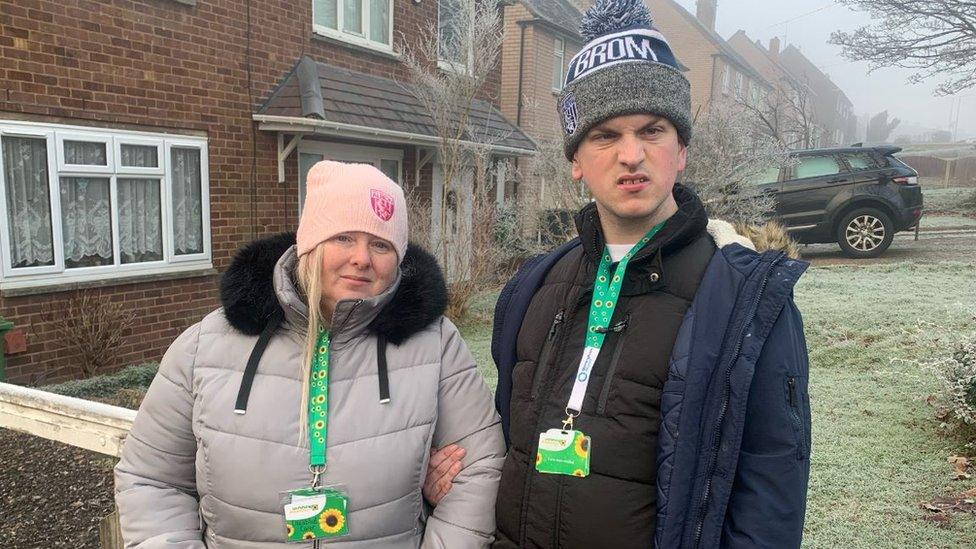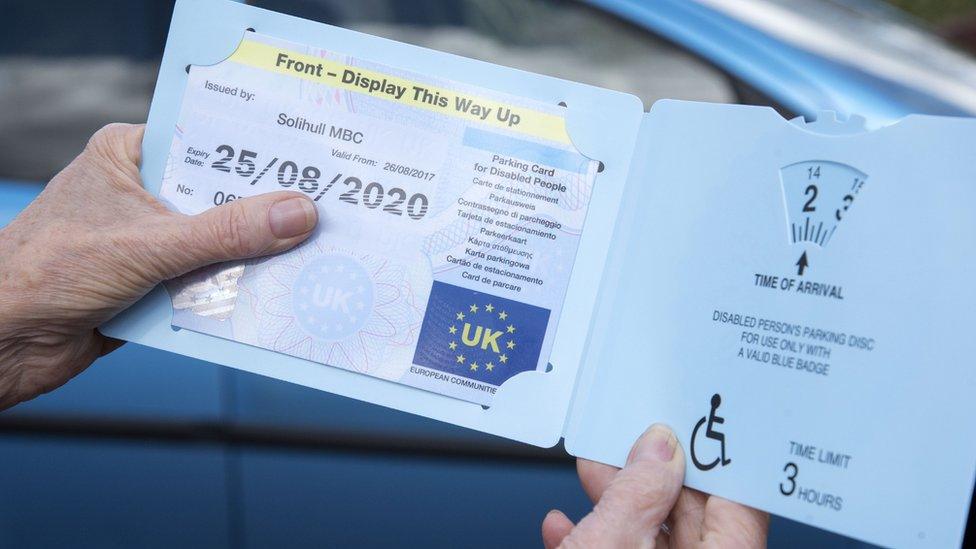Blue badge denied: Stourbridge mum feels 'worthless'
- Published

Leanne Westwood's son Jordan had a blue badge until he was aged 11
A mother says she feels "worthless" after her son, who has cerebral palsy and autism, was denied a "lifeline" blue badge despite meeting criteria.
Leanne Westwood, from Stourbridge, West Midlands, said Jordan, 24, needed to be driven to places, making use of the parking permit, because he had no road awareness and could not talk.
She says a care plan wrongly states he can use a bus unaided.
Dudley Council said it could not comment on individual cases.
The authority added there was an appeals process.
A BBC investigation has found people with non-visible disabilities such as autism face a "shocking disparity" when applying for a blue badge.
"It's made us feel angry, like we're worthless," said Ms Westwood, adding that better access to college and shops for Jordan would be a "lifeline".
"He needs a blue badge, he's got no road sense, he can't talk, he's got metal rods in his toes. It's difficult to get [one] because Jordan looks like there's nothing wrong with him."
Ms Westwood said: "In his educational health care plan, it says he can use his bus pass and go off on his own, when in reality in his college they said there's no way he could go off on his own."
Jordan had a blue badge until the age of 11, when the criteria changed and he was no longer allowed one, Ms Westwood added.
Jane Carolan, from the charity Autism Together, said: "Many, many families and supporters of people with autism have had to fight all their lives.
"I think there needs to be more training for the individuals who are processing the blue badge applications that they understand the real person who is applying for that badge."
Councillor Nicolas Barlow, cabinet member for health and adult social care at Dudley Council, said: "We are only able to provide a blue badge if a person meets the criteria which are set by the Department for Transport.
"We welcomed their decision which came in at the end of August 2019 to include hidden disabilities as part of the scheme.
"Our advisers can help people check if they are eligible and talk them through the application process and we would encourage anyone who needs help to get in touch.
"There is an appeals process for people who have had applications declined and are unhappy with this decision."

Follow BBC West Midlands on Facebook, external, Twitter, external and Instagram, external. Send your story ideas to: newsonline.westmidlands@bbc.co.uk , external
- Published7 January 2021
